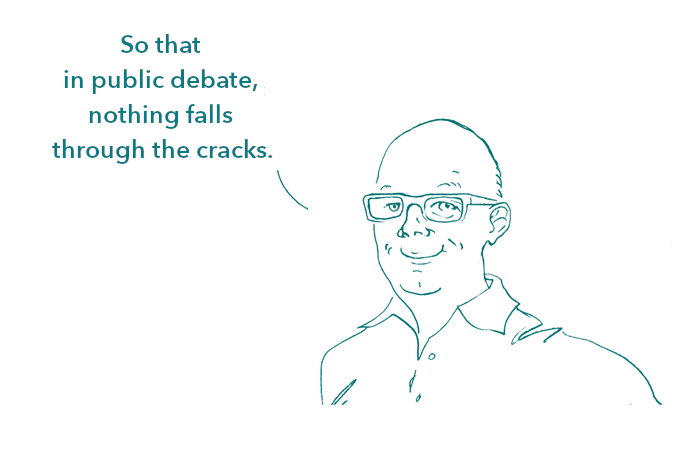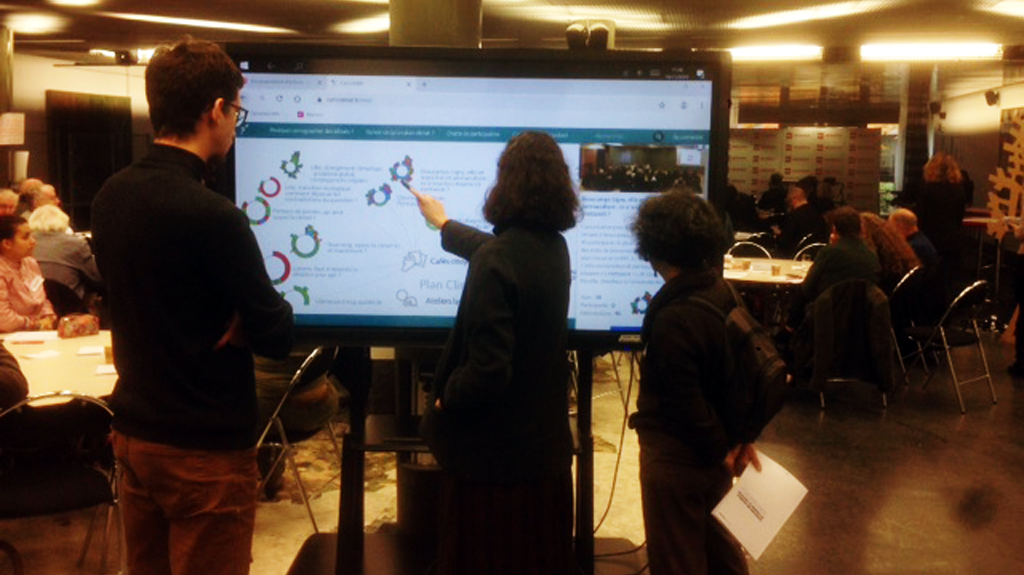Ecology
Public debate plays a role in the implementation of
ecological transitions.

Public debate plays a role in the implementation of
ecological transitions.

We engage on behalf of groups and organizations that wish to draw on the results of public debates to influence public policies and local actions. Debate can be seen first as a means of integrating a pedagogical element into understanding the deep changes of behavior required by ecological transition. Debate will certainly come to play a greater role in both small and large scale social transformation.
Citizen participation requires that organizing stakeholders be ready to work collaboratively with the public, with a real commitment to taking their contributions into account so as to achieve common goals. Handled differently, an opposite effect is likely: that is, the creation of defiance toward the proposed measure.
An understanding of situations and challenges -- the level of decision-making, the timetable, the risks, the opportunities -- and the consideration of ideas and observations coming from regional players speeds up the implementation of decisions taken by all players in a social and economic fabric.
At the start of each project, our team meets with the various players in the region. Advance preparation is needed in order to conceive well-informed sequences of participation. For example, we delineate protocols for the reproduction of public comments according to the modes of participation of the regional population.
Reliance on multiple sources (reconstruction of live debates, regional surveys, online participation) draws in a wide diversity of viewpoints, providing a significant corpus of input from which to draw meaningful content. The mappings created at this basic level with the local public seek to clarify collective decisions with respect to the views expressed in a given region.
Following an analysis of all contributions, we offer consultation with regional agents and elected officials to derive an interpretation of the results. The understandings achieved following each debate can be traced back to the areas and sociocultural context from which they emerged. For purposes of analysis, therefore, it is advisable to rely on the knowledge of those familiar with the history and players from which the corpus of contributions arose.
At the conclusion of each debate cycle a reconstruction is posted online. Participants with online accounts are notified and invited to a reconstructive real-world event. This is a singular moment in which decision-making can be directly influenced by comments from the public. The debate maps we produce strive to bring greater transparency to citizen participation and public policy decision-making -- a form of collective memory of what has been said.
The reconstruction follows the reading and evaluation of contributions (the annotation method) and interpretation of the results by experts in the concerned region or regions.
 Reconstruction of consultations for the
Climate-Air-Energy plan for the European
Metropolis of Lille - November 2019
Reconstruction of consultations for the
Climate-Air-Energy plan for the European
Metropolis of Lille - November 2019
In general we produce the following deliverables:
Insofar as these maps are the fruit of a collective process, they are accessible to all. Our syntheses are open to discussion; anyone may make a critique concerning what was said during the debate face-to-face or online. We bring transparency to the analysis methodology, as well as traceability of the source data in such a way as to generate credibility and confidence in the debate process. The organizing stakeholders of the debate thus have the means at their disposal to link the outcomes of the debate to their actions and decisions.